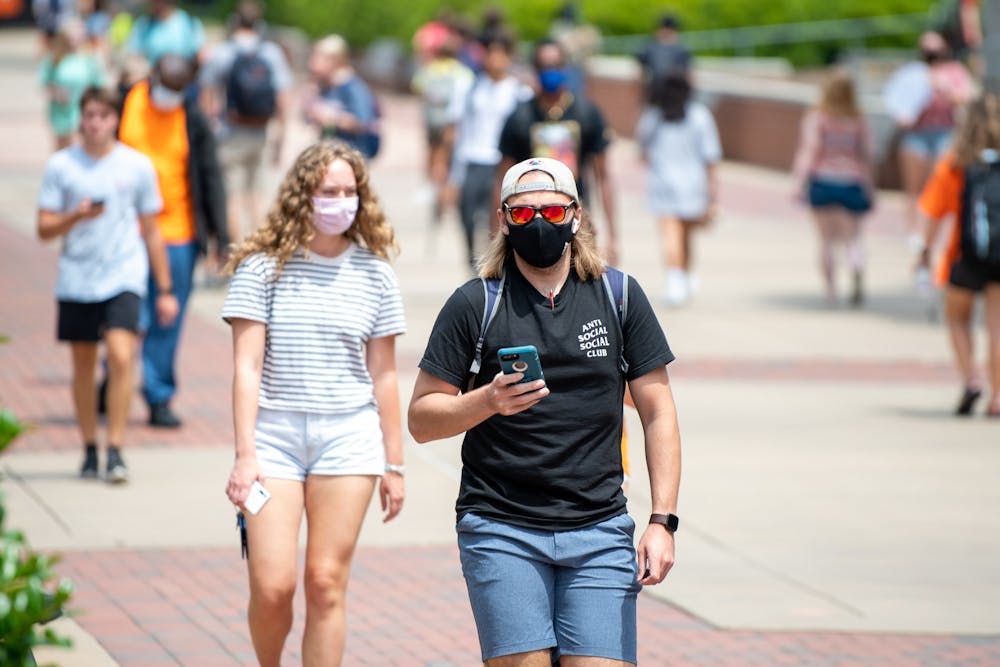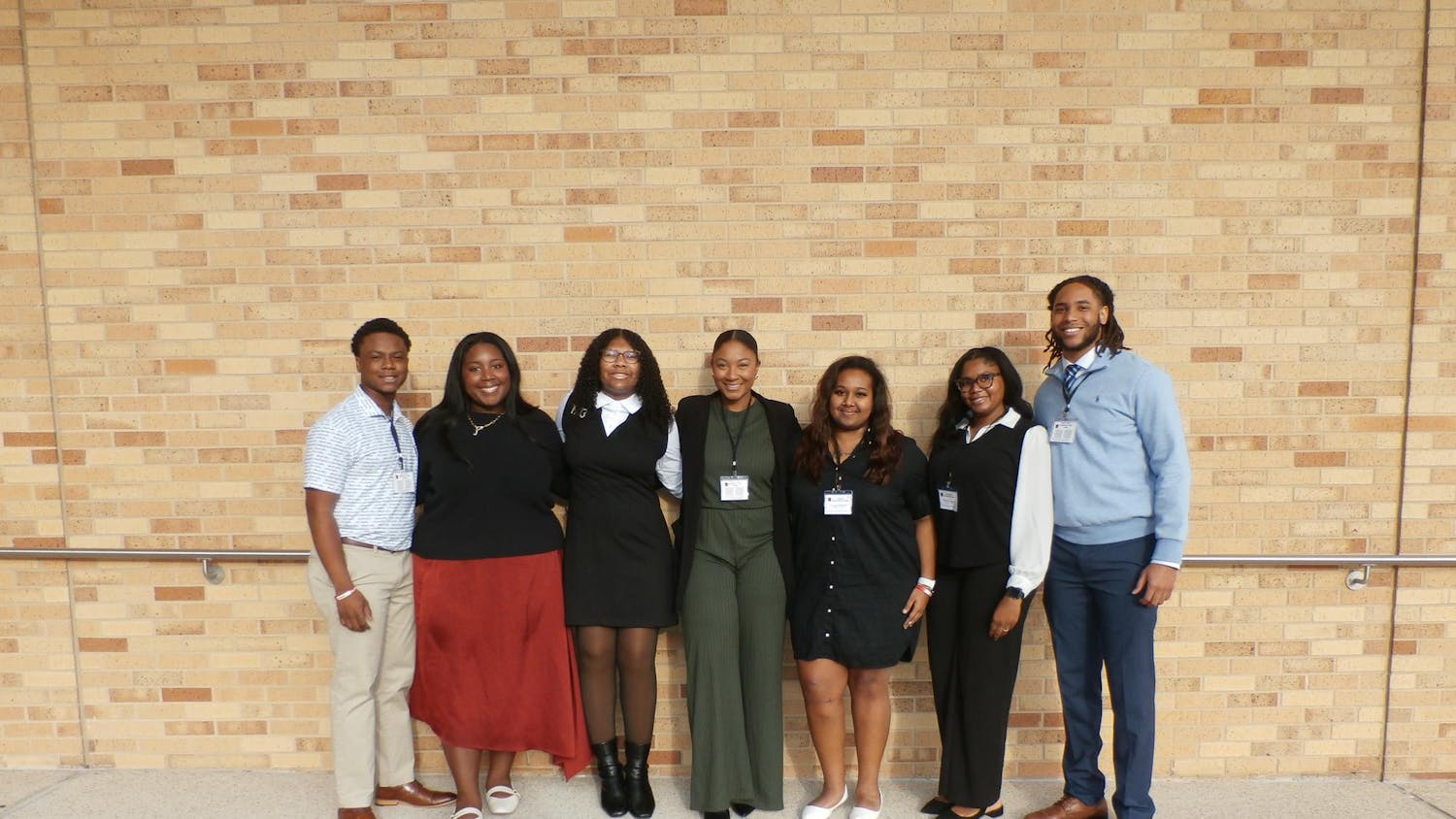At the time of publication, Auburn University is a week into its fall 2020 semester.
Already, more than 30 students have tested positive for COVID-19, an unknown number of students have not been tested, a full floor of a sorority residence hall has been placed under quarantine, the number of daily positive cases in Lee County has spiked and multiple videos showing students packing into bars downtown have surfaced on social media.
Going into this semester, one of the largest aspects of Auburn’s reopening plan has been the implementation of a student-wide testing program through GuideSafe.
GuideSafe is a platform and series of applications developed by the University of Alabama at Birmingham. Universities across the state have been using to monitor and prevent the spread of COVID-19 on campuses.
However, as tens of thousands of students across the state attempted to get tested in the weeks leading up to the universities’ reopenings, many students fell through the system’s cracks.
Peyton Worthy, senior in Wildlife Ecology and Management, said that even though she got tested well before classes reopened, she still hasn’t gotten her results.
“I got tested over two weeks ago,” she said. “I’ve been waiting for my results and just got an email from GuideSafe yesterday.”
After a two-week wait, Worthy said she was expecting to get results in an email, but instead had to start over.
“They told me that I have to go for a retest due to their lab not being able to process my test results,” she said. “Also they apparently got locked out of my account, so I have to make a whole new one with a different email.”
Worthy is not alone.
Multiple students across campus have reported either not getting their results back before starting classes or having not been tested by GuideSafe at all.
This directly violates GuideSafe’s own entry testing plan.
“Students should be tested within 2 weeks (14 days) prior to their return,” according to a GuideSafe document. “All students MUST receive a negative test result before returning to campus and prior to their first campus activities – i.e. before rush, before move-in, and before classes.”
However, in an email on Monday Aug. 17, the University announced that it would not require students to complete their reentry testing until Friday, Aug. 21.
This means that some individuals, like Worthy, have spent a week on campus interacting with students, faculty and staff without having received test results from GuideSafe.
On Wednesday, Aug. 19, Auburn University released its first numbers related to the number of COVID-19 cases on campus.
According to the information released, the University added 41 cases on its main campus between Aug. 8 and Aug. 14. Of those cases 32 were students, eight were employees and one was classified as “other.”
“Cases reported to the University include those tested at the AU Medical Clinic, through the GuideSafe program, shared by the Alabama Department of Public Health, and self-reported by members of the campus community,” the University said.
This information will be updated on a weekly basis, according to the University.
“For each individual reporting a positive case, contacts are traced, and those with increased risk of exposure due to close contact are instructed to self-quarantine, monitor for symptoms and, where possible, get tested,” the University said.
According to Preston Sparks, Director of University Communications Services, the University is not disclosing any of the geographic locations of these cases, how many students were tested or what the overall positivity rate is.
“The numbers reflected in the online table represent only those positive cases that were reported to Auburn during the listed timeframe,” Sparks said. “The table is not intended to reflect the full scope of all who took tests but rather to alert the community of the impact of the disease on campus.”
To supplement this, the University is encouraging individuals to gather the data provided by state and local organizations.
GuideSafe releases information to the universities it serves, but Ashley Foster, the public relations lead for the platform, said that they will not be disclosing specific information about individual universities to the public.
“GuideSafe will release statewide numbers on Tuesdays and Thursday: number of students tested overall and the positivity rate for the whole state. And these numbers only,” she said. “Any school-specific questions will need to go to your university’s lead administrator.”
According to Foster, 60,000 students have been tested by the GuideSafe program across Alabama with a 0.8% positivity test rate.
While Alabama’s statewide GuideSafe program is only reporting a positivity rate of 0.8% for the students they’ve tested, Lee County reported a positive rate over 10% in the weeks leading up to classes starting on The Plains.
In fact, according to data from Bama Tracker, Lee County added 82 new COVID-19 cases on Tuesday, Aug. 18. This was up from just three new cases the day before.
This spike directly correlates to the return of students to Auburn’s campus in the days and weeks prior.
Also on Tuesday, the same day that GuideSafe first released its information, the University amended its A Healthier U plan to include a requirement that students wear masks even when they are outside. Sparks said that the decision to include this additional requirement was based on the actions and responses that colleges across the country have taken.
“Auburn’s more robust policy is in response to experiences at other universities and observations of students on and off campus the past few weeks,” he said. “Our goal is an uninterrupted fall semester, and face coverings are essential to achieving it.”
Sparks also said that will be ways for the University to enforce these guidelines for both students and faculty.
“The policy is enforceable for faculty and staff through the normal employee disciplinary process, and any student violations in the classroom will be addressed through the university’s Policy on Classroom Behavior,” he said.
For the new outdoor extension of the mask requirement, Sparks said that any violations will be handled by the University’s Code of Student Conduct.
The “experiences at other universities” that Sparks referred to are likely the series of events which have now taken place at Notre Dame, the University of North Carolina and Michigan State University.
All three of these schools have already sent their undergraduate students back to remote learning following multiple uncontrolled outbreaks among students.
However, by using the state data provided by GuideSafe, it’s possible to see why Auburn officials might have had reason for concern.
According to UNC’s COVID-19 dashboard and reporting by The Daily Tarheel, UNC’s positive test rate in the days leading up to its return to campus was a little under 3%. But within the next week, the school saw 136 people test positive. At that time, the university had four active clusters of the virus in residence halls and a fraternity house.
Within days, the school’s undergraduates had gone back to remote learning, and on-campus students were asked to go home.
“Carolina Housing informed residents that they should make plans to return to their ‘permanent home’ for the fall semester,” The Daily Tarheel’s Kate Carrol wrote.
Auburn has also had confirmed cases of COVID-19 in one of its Greek Life organizations.
Two active members of Kappa Kappa Gamma tested positive for the virus following the organization’s in-person Bid Day events, according to an email obtained by The Plainsman.
The email, from Kappa Kappa Gamma president Montgomery-Lee Todd, senior in accounting, was sent to members of the Epsilon Eta chapter on Auburn’s campus and other potentially exposed Bid Day participants on Tuesday after the two members received their results on Monday.
“If you are receiving this email it means you are marked as ‘attended’ on our records for Bid Day event(s) on Aug. 15 and may have been exposed to two of our Active Members (roommates) who tested positive for COVID-19 this Monday, Aug. 17,” Todd said in the email.
Both members have contacted the University and are moving to quarantine housing in The Hill as well as following A Healthier U guidelines, Todd said. She asked KKG members to keep watch on their symptoms and to contact the Auburn University Medical Clinic should they have any concerns.
“The members have already communicated with the women they were in close contact with, including roommates and Bid Day buddies, so y’all should know who you are and I would also recommend you get tested,” she said in the email.
Todd followed by saying she expected some positive cases to appear during the semester and is monitoring how the University is approaching COVID-19 tracking on campus.
“I did not believe that we could go an entire semester without a single case obviously; however I do want our chapter to be proactive and take this seriously, as I am only starting to learning how prepared the University is for contact tracing to begin,” Todd said. “It is so important that we are holding each other accountable and having these hard conversations, so that we are able to still have any sort of in-person events or activities in small groups in the future.”
As the fall 2020 semester continues, and more universities transition back to remote learning, Auburn has still not released any specific information on what conditions would potentially send students away from campus again.
“It is important to understand that there is no magic number of positive cases that will trigger a change in university operations,” the University said. “Decision-making about safe operations depends on a lot of complex factors, including but not limited to, nature of operations, prevalence of the disease in the community, impact on local healthcare facilities, and guidance from state and federal public health agencies and officials.”
Reporting for this story was contributed by Tim Nail.
Do you like this story? The Plainsman doesn't accept money from tuition or student fees, and we don't charge a subscription fee. But you can donate to support The Plainsman.





